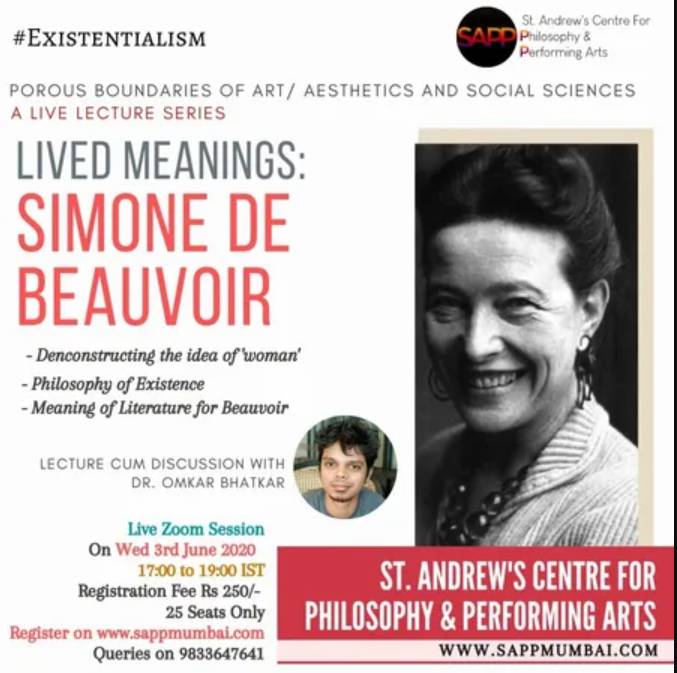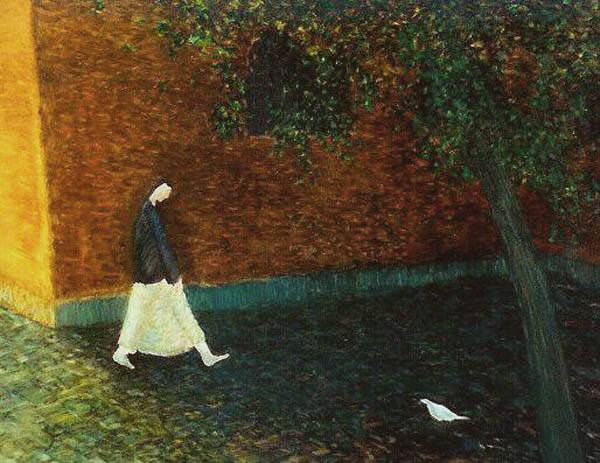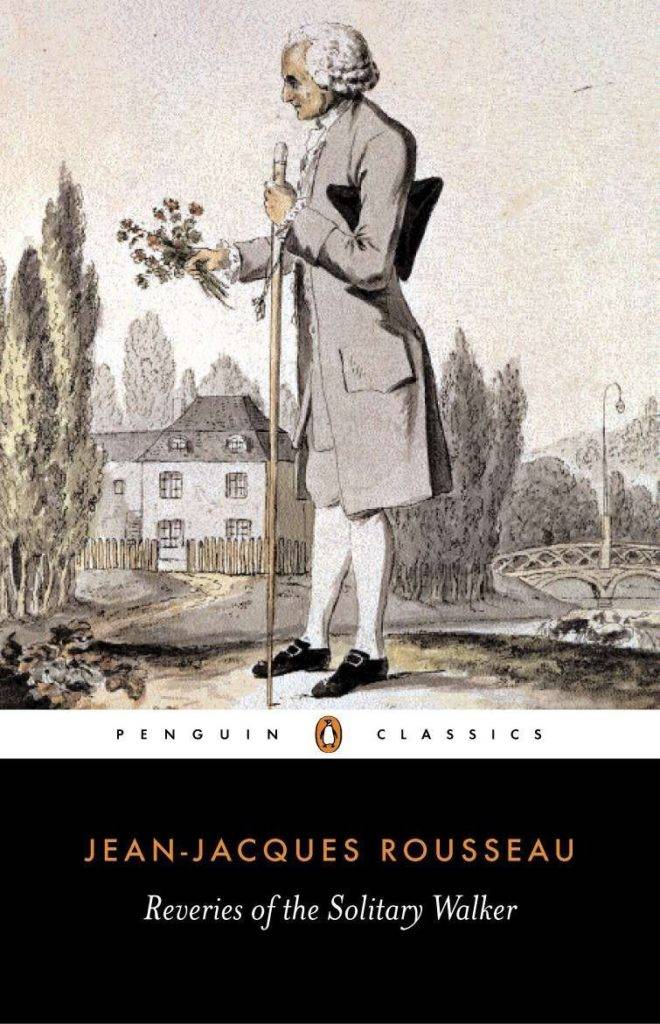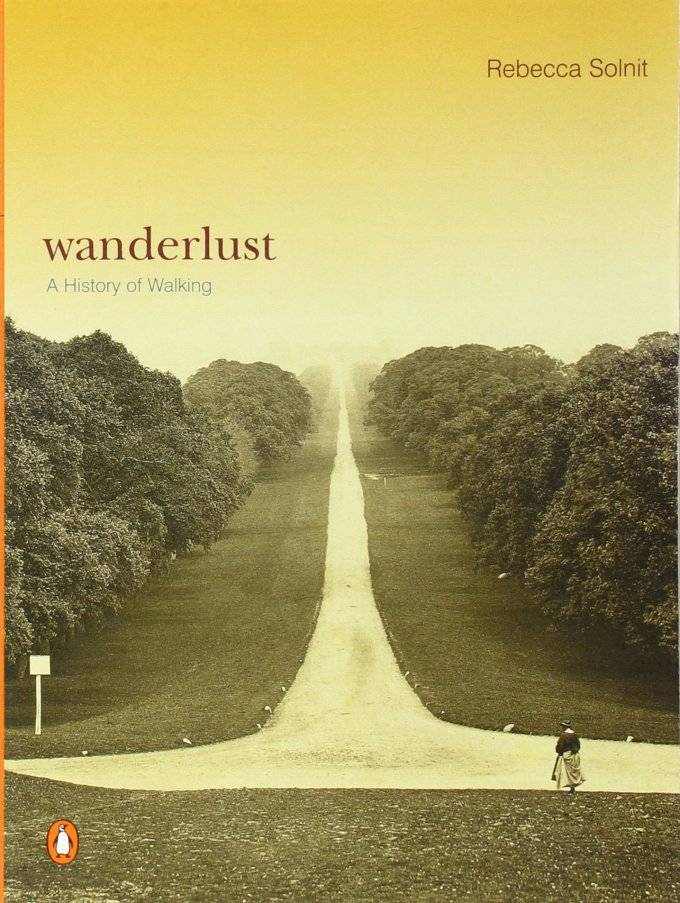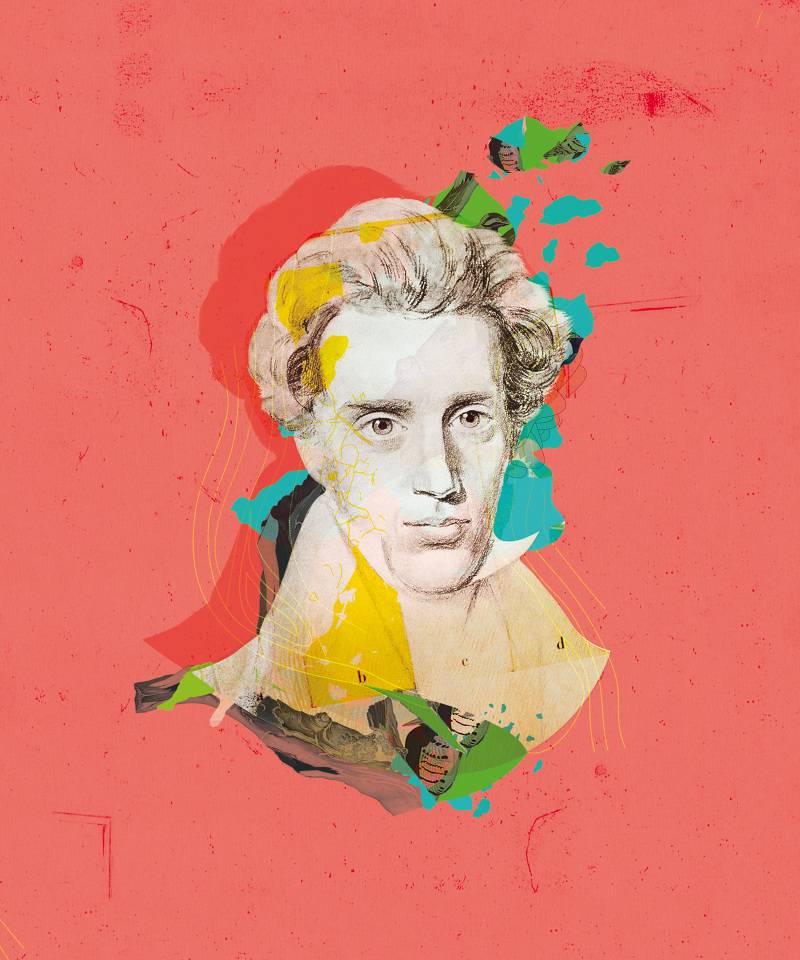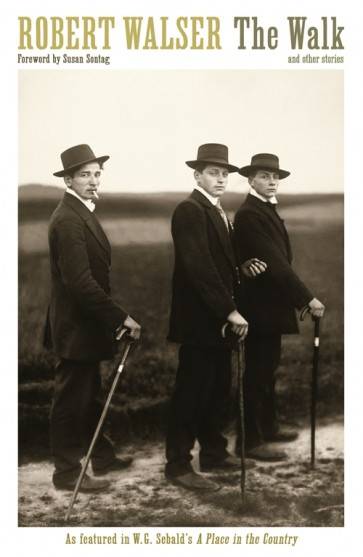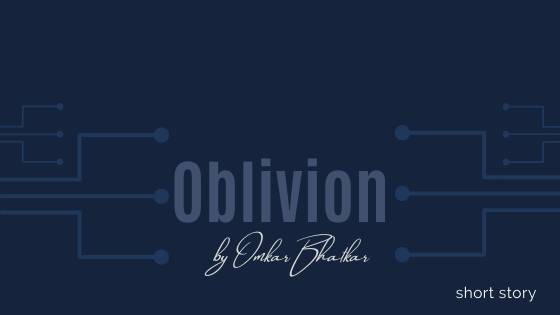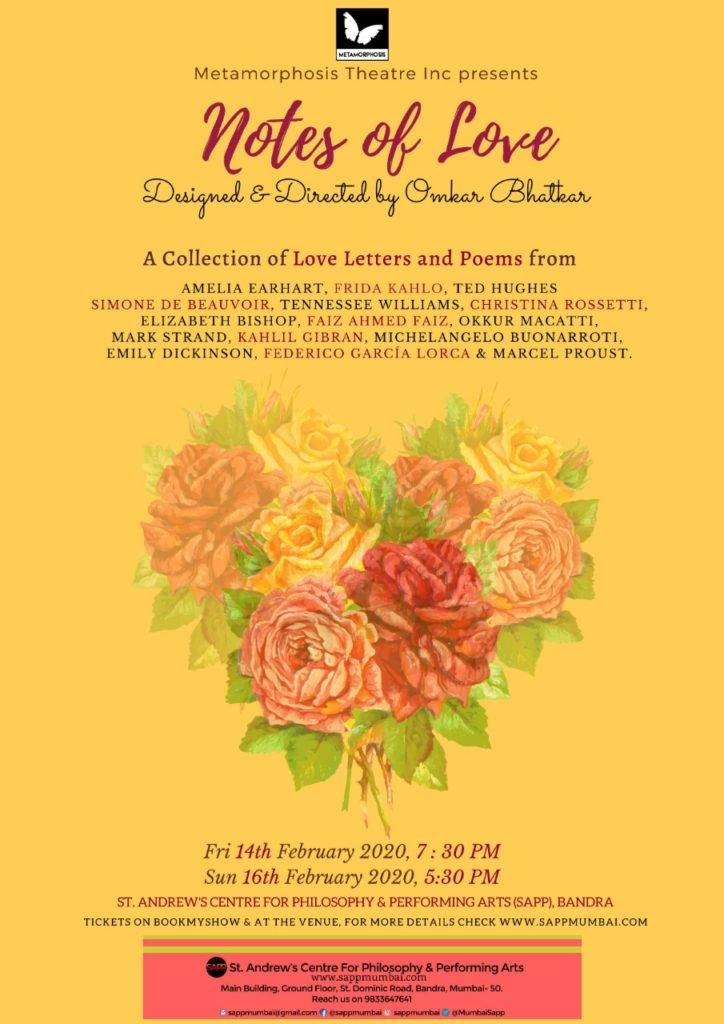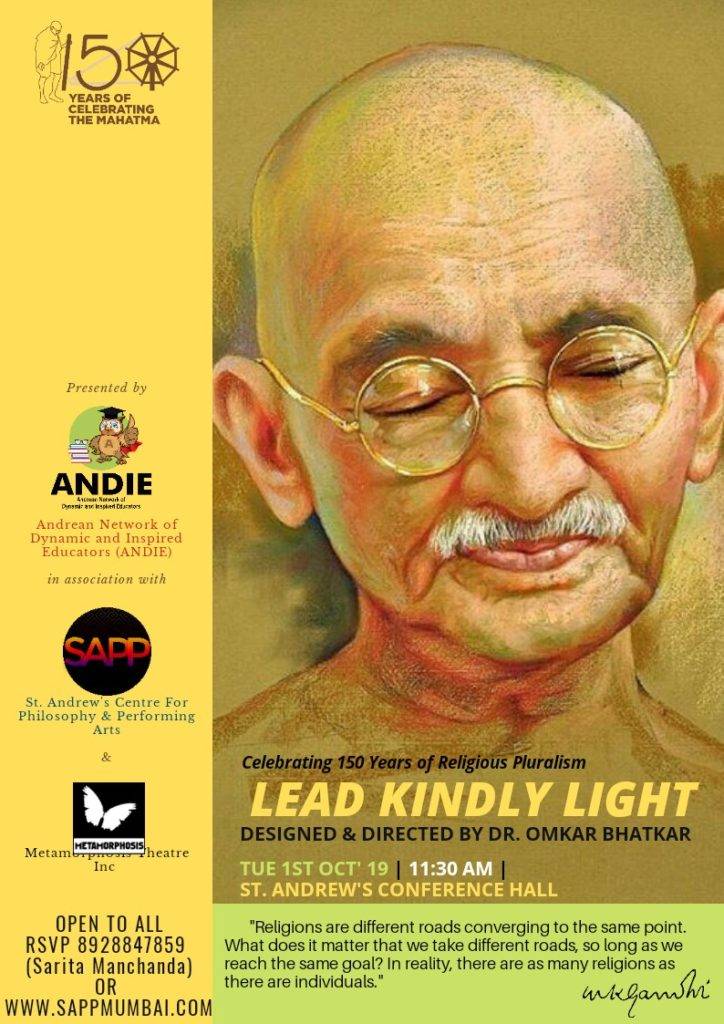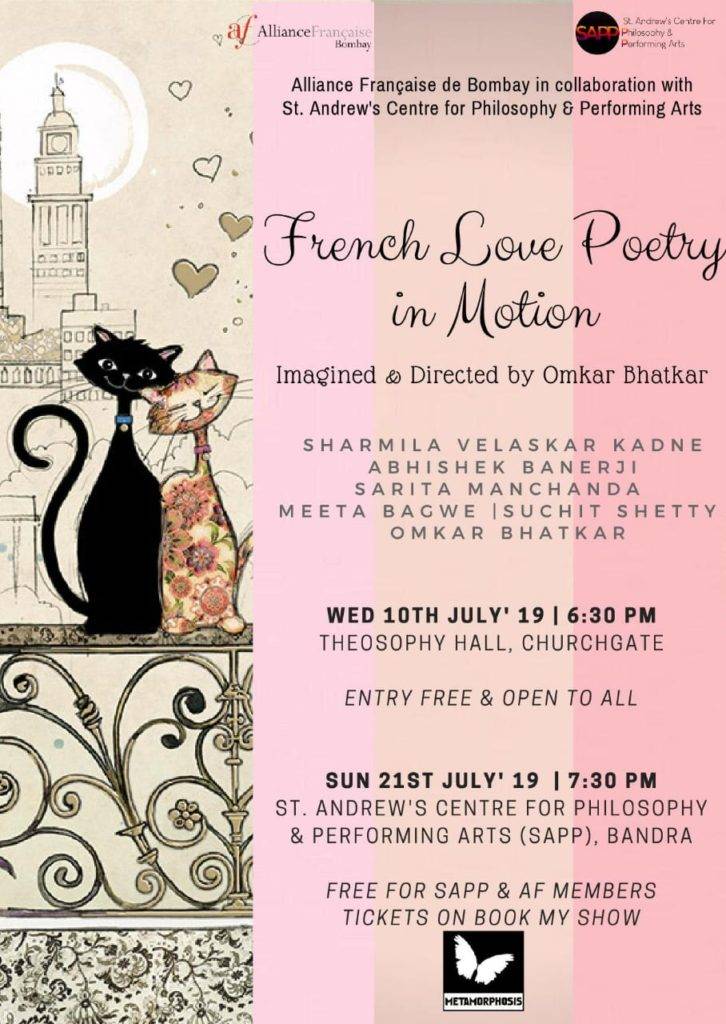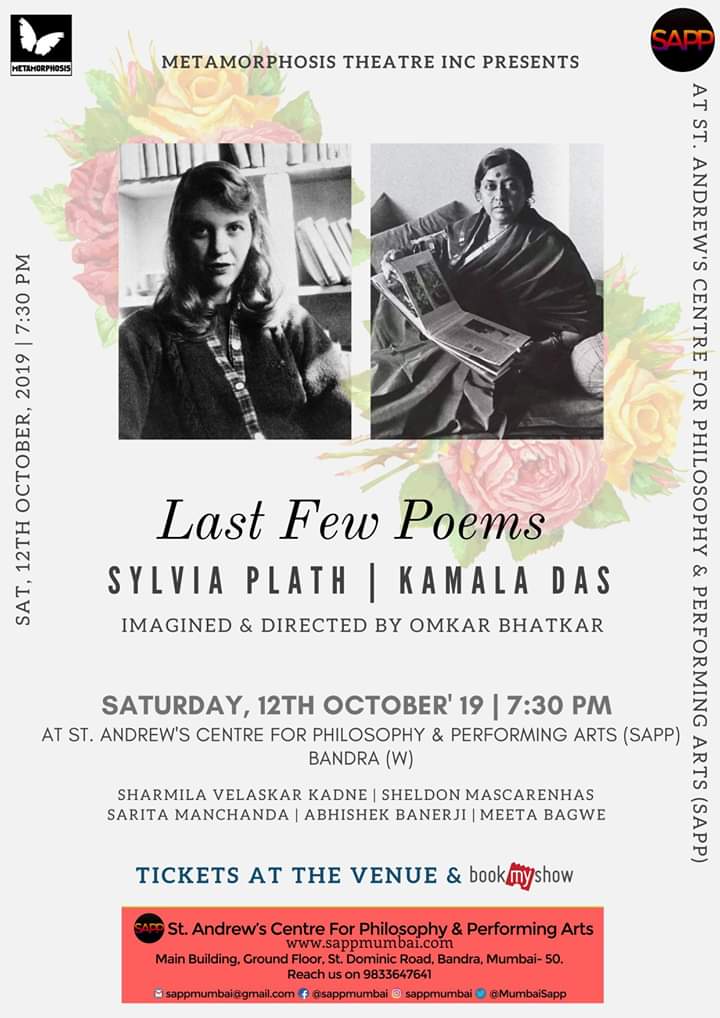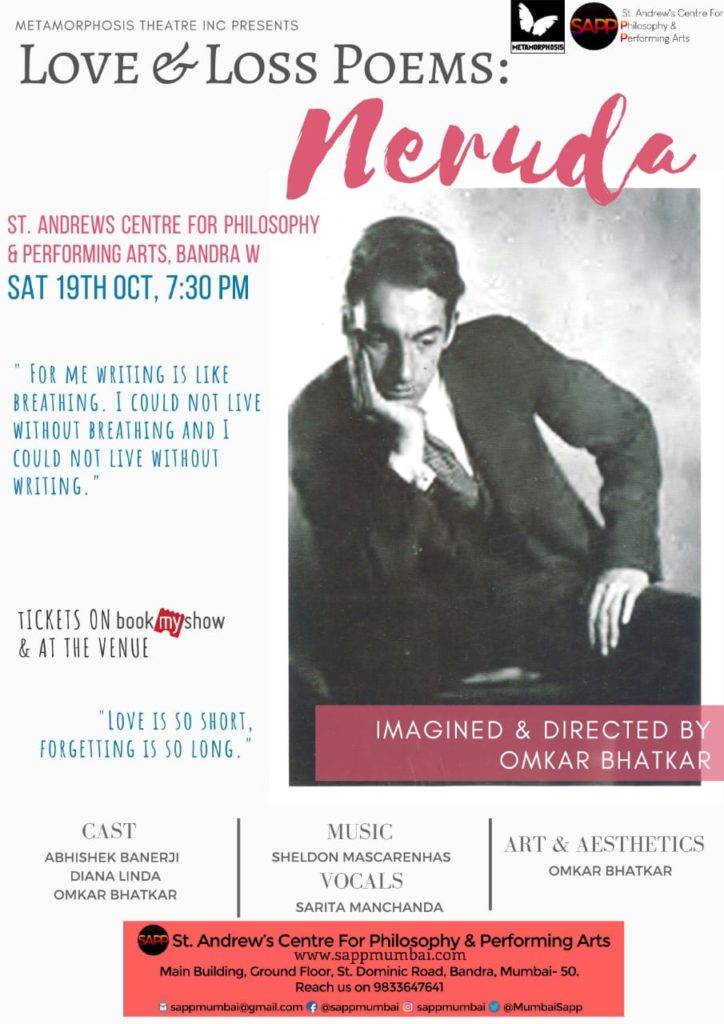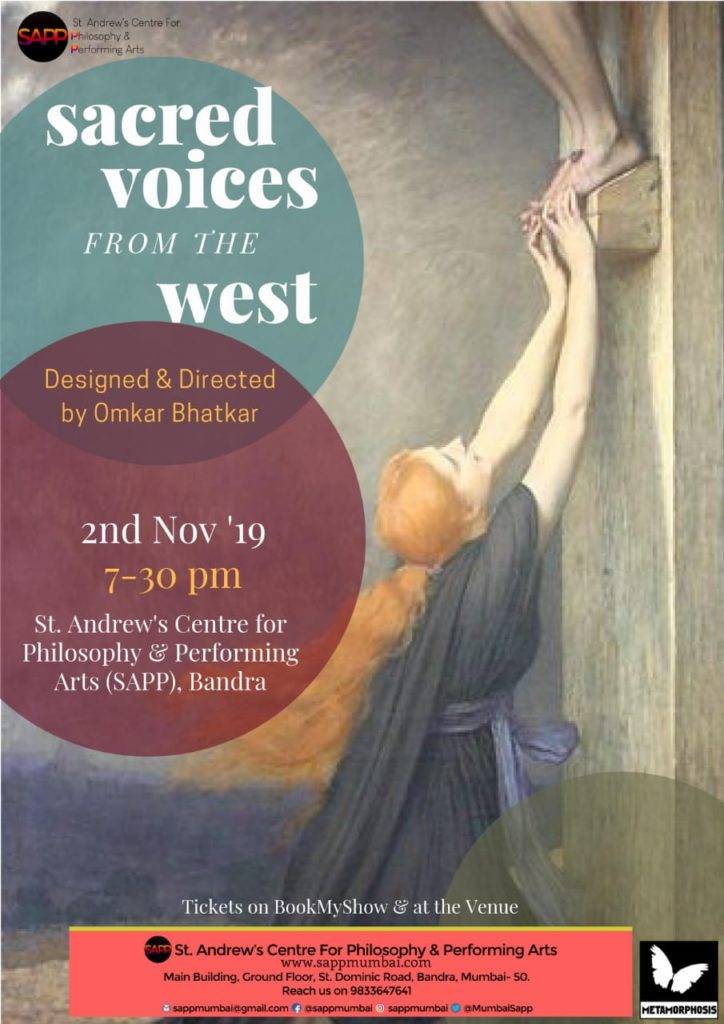The phone rings at 10 in the night. Wondering who it could be, I pick up the receiver and say ‘Hello’.
There is no response on the other side.
Again, I repeat ‘Hello’.
There is no response.
I say in a quick tone ‘Hello, Hello’.
There is no response yet again, but a calm silence. I become quiet and listen to the silence, then I again softly say, ‘Hello’.
I interpret the silence with a fear of the known, and my tone turns into a nostalgic ‘hello’, as if the pain in my voice would compel the person on the other end to say hello.
I could hear the breath of the other person caressingly falling on my ear drums, soothing me from my painful past, which at this moment, seemed beautiful.
I yearn to hear a response.
Then comes an unsure ‘Hello’ from the other end.
With moist eyes I respond immediately, ‘Is that you, is it really you?’
The other person hangs up. With the beeping tone, this wired conversation disconnects the surreal imagery of a past, which is unveiling in the dark night of the present and thus, begins the conundrum of scattered images. Pictures from the past that seem to make the present look unreal. I am plagued by these pictures and incandescently, transported to my past.
‘I was quickly making some cheese sandwiches, and he was in hurry to leave. The rain fell incessantly outside. He had to drive the whole night. He had not eaten and I couldn’t just let him go hungry. I managed to pack a few sandwiches for him and wrap them in a brown paper. I put them in his bag. With a smile, he hugged me and rushed out. With the thud of the door, I ran to my window to see him drive away. I again bade him goodbye, waving my hand in the air, as he drove straight into the thick wall of rain. He looked back at me, with a slight smile, resumed driving and continued to absolve into the thick rain. He soon disappeared and I stood at the window drenched in sweat and rain, still absorbed in the musk of his blue chequered shirt.’
I am still holding the phone standing at the window and looking into oblivion, as if I was still at the window of my reminiscent past; as if a part of me was still there in that night waiting for him. I keep waiting frozen with time, only able to move once again with his touch, which breathes life into me. The same breath is now echoing in my ear drums, reverberating in the phone and I am filled with that breath. The cells in my body are moving to this older rhythm they knew, they immediately recognized and are now dazed losing themselves in a present-past.
Before I can put this night in place, my soul races to call him back on the same number. I call the number again and again and again, only to realize I can’t reach him. It doesn’t really surprise me because now I know, it was him. It really was him. This is exactly how he always behaved — unpredictable and never responsive. The phone in my hand now takes me back, to about a decade ago.
‘I was in my studio teaching some new students about the Art of Frida Kahlo, her methods of expression of pain through a physical tragedy and the painfully loving relationship with Diego Riviera. While I had asked the students to go through Frida’s Memory, by heart, I happened to look at my phone. The phone was vibrating with an unknown number flashing on it. Even though I didn’t want to answer it, unknowingly my hands moved to pick it up. Before I knew it, I uttered a very soft ‘hello’. There was no response; I uttered another soft ‘hello’. The next moment, the person on the call responded ‘Hello’. There was a long silence. My heart sank and I moved out of the studio into the courtyard. I stood leaning on the pillar not knowing how to respond. He said ‘I hope you remember me?’
I responded ‘Of course, I do. Where have you been so long? Do you even realize what you do to people? I’ve been going crazy thinking about you? I try to call you but your number doesn’t exist? Why do you do this?’
He, replied ‘I called you now.’
I responded, ‘I don’t know what to say, I’m just …….I’m just shocked. I don’t know how to react. First, you disappear with no trace and suddenly out of nowhere I get this call; and I just don’t know what to say, I really don’t. I missed you. Where were you and whose number is this?’
He continued “Maya, I’m here, talking to you. I will tell you everything slowly. First, tell me how have you been? Do you still paint?”
We conversed endlessly. I was happy that he had called; and like the first blossom of spring, I was happy. Like the Easter lily, my face lit up. Even if it was for a few moments, I floated on a cloud of happiness that knew no bounds. And precisely, because it had no direction, this happiness drifted away until there was no trace, losing itself in the mist once again.
“Do you still live in Mumbai?”, I asked.
He replied “So far yes, but I would be moving very soon.”
“Where?”, I wanted to know.
“I will let you know. You know that I lost my mother, right?”, He asked.
I replied, “I didn’t know. How would I know?”
“Hmmmm….. “ ,he said.
“What happened?” I enquired.
“I guess it was her time. Time took her away”, he explained.
I remarked, “It must have been very difficult for you!”
“It was. In fact it still is. But I have to live with it”, he replied.
“So now it’s you and dad? How is he doing?”, I asked curiously.
“He is doing like before, nothing much changed for him, I guess”, he answered.
“You never really liked him?” I asked.
“There wasn’t much in him to like, he was just a dad who could never understand what his child wanted from life”, he reminisced.
“I’m sorry”, I said sympathetically.
“You don’t need to be. I’m living with it and trying to move on. ‘Move on’ is a strange term. I wonder if there is something like move on, because if we do, we wouldn’t be still stuck there”, he said to put me at ease.
I responded, “Yes, stuck is where we leave a part of us; a part of us that we often don’t find later, because it’s always somewhere there in the past. And bringing the past with the present is not really a present but a coherent past, just like different pieces of the past that sums the present.”
“And often we find a part of ourselves wanting to turn back the clock”, he added.
“Just like you’re doing it with this call?” I asked.
(We both smiled)
I continued, “I don’t know why you do this to yourself? To us?”
“I don’t know it myself, but I guess it’s something; I’m trying to understand”, he said with deep sincerity.
“I’m not going to ask you where you disappeared that night in the rain”, I said.
“I think it’s been a very long conversation and my office colleagues are wondering. Can I call you later?” he asked.
Filled with uncertainty, I asked “Are you sure that you will call?”
“Yes, I will”, he promised.
“May I have your number?”, I asked curiously.
“Maya, I still don’t use a phone, this is the office number”, he informed me, “Don’t worry, I will call”, he promised.
“I guess I believe you”, I said.
“And don’t think so much and return back to your studio”, he said gently.
“Yeah”, I said, a little disappointed.
The phone call ended.
I kept leaning on the pillar looking at the sky with moist eyes and all I saw was, white clouds passing by. In the courtyard, the spring blossoms had sprung up, it was a new beginning. With a faint smile, I walk back to my studio.
Suddenly, I realized that, I could not resume my class; I could not go back to my present. I was lost somewhere on an aimless drifting cloud, that only brought momentary passion in exchange of an aimless longing.
Probably there was hope in my heart that he is there around, watching me quietly and following me with utmost precaution to remain unnoticed. Sometimes I felt as though he might slip in through a back door. I had never shut the door for him, it was he who softly shut it. I ran to the window to get a last glimpse of him walking away in the rain. May be that’s why, I couldn’t cry, nothing was said; only his last smile, as he looked back through the thick rain.
The next few days slowly revealed to me, the same fear that of the known. I had feared that he might not call. I waited for days and there was no call. It was weeks now, but no trace of him. I was holding each day with patience, but was unable to see time slipping through my hands. I unknowingly dialled his office number to see ‘what would happen?’ ‘What if he picked up my call?’ ‘What if someone else picks up and hands it over to him?’ Without imagining what his office, cubicle, cabin or the floor looked like, I dialled the number.
I said ‘Hello’.
Man on the phone responded ‘Hello’.
“Is Walter there?”, I asked.
“Who, Walter?”, was the man’s puzzled response.
“Mr. Walter Smith”, I replied.
“Mr. Walter Smith, doesn’t work with us anymore. What is this regarding?”, the man enquired politely.’
I was still holding the phone and remembered that this was the call, I made many years ago too; but I couldn’t recollect how many years ago. Memory is so strange, if not revised, moments lose their timeline. Sometimes they lose themselves slowly- part by part, piece by piece, strand by strand, over a period of time. Often, what’s left behind is some paltry scrap. He could have become a distant memory but, he was like a shadow in my life. He was around — just everywhere.
Still holding the phone, I recollected that I could try to trace his email. Then I could figure out and end my struggle to know how long ago he had called. Perhaps I wanted to know the exact month, as my present seemed meaningless without knowing the incinerated past. But to trace each part, I needed to find that email. It was only with this email that I would be able to trace the timeline of which event followed the other. And there were several other parts. At the moment, the dots were scattered and nothing was joining them to make it a complete picture. Unable to control my overwhelming emotions, I sent him an email on the email id that I found. I wrote down my feelings of agony and love.
I hold the phone, recollecting how to trace the email sent. Possibly, then I could at least figure out how many years ago did we speak, as I was still struggling to understand, when was it that he called. May be, I wanted to know the exact month, or may be my present was becoming meaningless without knowing the incinerated past. I couldn’t believe how time had erased parts of me. Part of me standing at the window watching him drive away into the thick rain. Part of me leaning on the pillar, looking at the spring blossoms, hoping it to be a new beginning; and there were several other parts which I needed to trace. But to do that, I wanted to find that email. It was only with this email that I could trace the timeline of the parts, as to what event followed another. At the moment, the dots were scattered and nothing was joining them to make it a complete picture. I wanted the sketch of my past, and so, I ran to my computer to see if I could find that email.
It didn’t take me long to find that one last email written to him. The laptop at that moment had metamorphosed into a repository of my feelings and it read,
It was nice hearing your voice this morning. It felt as if I’m speaking to someone ‘lost in time’ yet stuck in between time and thoughts.
Though, I tried to reach you earlier, you seemed distant. But let’s leave that as past and look at the present. This long gap of time has taught me a lot, taken away some things and given a few things in return. I’ve grown and know a lot more now. The innocence in me is still there, but now it’s hidden inside.
Yes, I can say I missed you, because I do have close associations with people I care. Else, I wouldn’t be waiting at the window, saying bye to you in that thick rain. There was something that evening, that you didn’t tell me. Yet again, let’s leave the past. Doesn’t matter now!
I wish I was there next to you when mom left. I know that you’re a lost soul, and kept wondering what would have happened to you without her. I wish I could speak with you about everything right from the morning that you called. I don’t know if we will ever speak (knowing that you never revert) so, I thought….let me just write to you.
There is something that was left unsaid between us when you last called, and it felt as if it was an incomplete call…….
There is a longing, a loneliness. So I wrap myself in my art world, where I find some solace from “lovelessness” and yearn to find the missing part of my heart. My paintings have become intense and more painful, that’s what most say. May be, it’s the state of my consciousness expressed on canvas. Books give me solace, Art keeps me alive.
Sometimes I wonder if Life is a Paradox, as if Love and Loss exist together in the same heart, as if it’s a deal between them, that one would follow the other. Just like death follows life, the moon follows the sun, the spring follows autumn, probably loss follows love. And life wishes for this paradox, which itself is a paradox. Probably, paradox can’t be true. Because then everything would be a paradox. Paradox could be a cracked truth.
Yes, Paradox is nothing else but a cracked truth.
Amidst all these I write letters to people whom I really care about, and wish they were here. Wish they were here next to me but aren’t. So letters have become a way to express all that’s happening within. Just like this letter to you.
Looking forward to talk to you… Have a cup of tea with you.
As a closing remark I would like to quote Louis Aragon, “By the time we learn to live, it’s already too late.”
Don’t worry, I’m not falling in love again, (rather I can’t); just concerned for you.
Yours,
Maya
The email’s date helped me to place the three parts of me in a time line; it’s been fourteen years since I last saw him at my home. Then two years later, he called me from his office. Almost a month later I sent an email and he didn’t respond. So, a couple of days later, I sent another short email, which bounced back, as the sender’s email id didn’t exist. Every time he came into my life, he made sure he left no footprints to his home.
Did he even have a home?
It was then I remembered him in the café.
‘A year and a half after that email, I was sitting in a café with my fiance. I had finally found someone who could understand me, someone who could be a part of a journey called marriage. Sitting with him in the café, while sipping my cocoa, I looked at the street outside. I always loved sitting at the glass windows from where the outside world was visible and I could see life pass by. The door opened and it was him with a lady. I pretended to have not seen him, and continued my conversation with my fiance. I was troubled or probably was curious. I wasn’t unhappy that he left me but, I was startled to see that he never got back to me and here he was, right in front of me and I couldn’t say a word, as he wasn’t alone. After some moments, he noticed me sitting at the window with a man. He smiled from his table and I smiled back.
That was it, no one said a word. My fiance asked ‘Who is he?’ Probably, the lady at his table asked him the same ‘Who is she? ’And we both replied, ‘Just a friend.’ No more glances, no more smiles. It was as if the café was filled with strangers and we both were one of them. The incident left me with the same thought, he was always unpredictable and something changed and changed utterly. Probably, both of us found love, but not with each other. As absurd as it sounds, nothing more happened. All of us left the café at some point that night to fall into the arms of a love, we newly found. A terrible beauty was born.’
I was sitting in the dark staring at the email, trying to put back the pieces of the past fourteen years since I saw him last at my home. Then two years later he called me from his office. A year and a half later, I saw him in the café with a lady, to whom I took instant dislike.
There was one more part of me waiting at the National Gallery of Modern Art, dressed in white, surrounded by people and my paintings.
‘It was the opening night of my exhibition on the Greek goddess — Lethe. While I was surrounded by art enthusiasts, I noticed him in the crowd. I thought that I was imagining him, only when he smiled did I realize, it was him. I excused myself and walked to him and before he could say anything, I realized that he wasn’t alone. He was with another young girl. Not able to resist, I asked him how had been and where was he now? He just smiled and responded that he was doing well. He appreciated the painting in one word calling it ‘marvelous’ , and said that he wanted his friend Lisa to come and see them. Before all of this dissolved once again and as usual we drift apart, I again asked him for his number and he said that he still never uses a phone. In that moment, I was surrounded by another set of people and before I could say something, I pleaded with him to wait, only to realize a few moments later that there was no trace of him. Like every time, no footprints going back. Once again, he was there in a moment and just vanished in the next. I couldn’t understand; time and again he did the same. If he didn’t want to stay then why did he even come? This was another part of me, stranded in a white dress, in front of a huge canvas, surrounded by people and I, staring into the oblivion.’
I gazed at the phone in my hand and at the email on the laptop screen, and then look at the painting of the goddess Lethe on the blue wall. Perplexed, I pulled a piece of paper and tried joining these dots in an order. I scribbled on the paper……..
It was fourteen years ago that I saw him last at my home. Then two years later he called me from his office. A year and a half later, I saw him in La Patisserie with the strange woman. Two years later, he shows up at my exhibition with another or probably the same woman at the National Gallery of Modern Art, and after that, no trace of him. So, it’s eight years and after that he never appeared, until now with the phone call.
What is he thinking? Why does he do it time and again? He comes without any warning and disappears with no foot prints. Like a ghost of the past leaves me terrified. Never again the present seems present any more and, I am trapped in a pendulum oscillating between the past and another past. The present is only the interim, from left to the right. Possibly, he doesn’t seek a journey and is content with the mystery of us together, where there are no conversations, no confessions, no promises and even no understandings — just a limbo. Perhaps he’d seen that sometimes it’s best to stop things when they are perfect. He pauses these moments and leaves them incomplete, so that the in-completion seems perfect and there is nowhere to go. No desire to complete these moments and see them turning sour.
Fourteen years have passed by, but it all seems like an inchoate picture of yesterday. As if nothing had changed and everything was the same. As if I am still waiting at the window in the thick rain, as if is I am startled by the phone call, frozen, leaning on the pillar, gazing outside in my infirmity, my eyes glued to the glass door of the café. I am immortalized on the canvas and am being painted in white, like a goddess of the oblivion.
Written by Omkar Bhatkar
